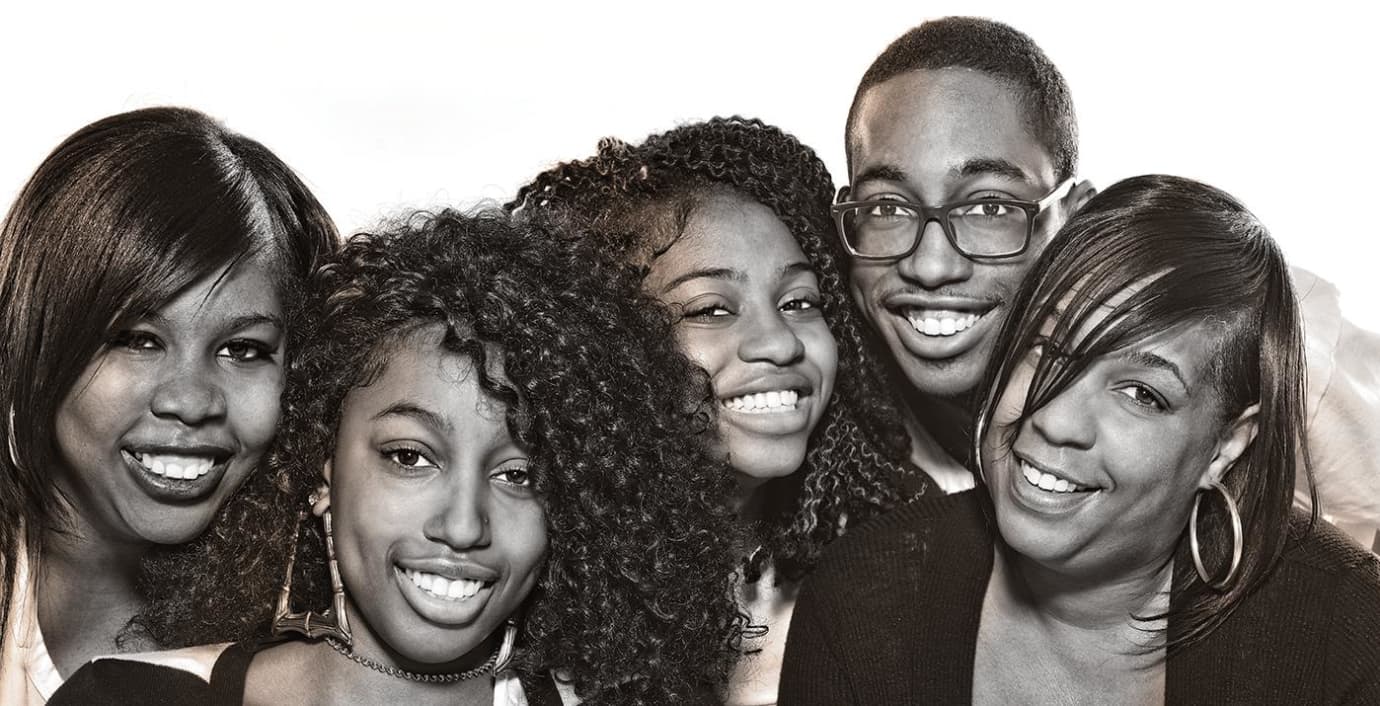-
Services
Featured Specialties
-
Locations
Location Type
-
Patients & Visitors
Published January 01, 2022

When Sharee Edmonds learned that three of her children had sickle cell disease, she prayed for a miracle that would cure them. That miracle came when her daughter Unity, now 17, was born. In an incredibly rare occurrence, her bone marrow was a perfect match for all three of her siblings. Now with seven siblings in total, Kortne Wright, 26, Alequis Wright, 24, and Cachet Wright, 21, are the only three that had the disease, while six carry the trait.
Sickle cell disease is a genetic disease that affects red blood cells in the body. Each year about 2,000 children are born with sickle cell disease in the United States, the majority of which are African American. When both parents have the sickle cell trait, there’s a 25 percent chance that their child will have sickle cell disease. Sickle cell disease can affect many different organ systems in the body. Important organs like the bones, brain, heart, and kidneys, which need a constant blood supply, can be damaged by sickle cells that do not move through the body as easily as normal cells. For the Wright siblings, it was very routine to have what they call ‘crisis,’ severe bone pain that was unpredictable in both duration and severity.
“Although they were diagnosed at birth, I didn’t start to notice symptoms until they were toddlers,” their mother Sharee says. “Fevers were the most common sign until they got older and started experiencing severe pain. It was very difficult as a mother to watch your children go through this. You learned to avoid certain triggers like extreme temperatures and flu season, but it was hard with three young children.”
In 1999, Alequis, who was 7 at the time, suffered a stroke and needed a bone marrow transplant to save her life. Unity was just seven months old, but the doctors caring for Alequis tested her to see if she was an HLA (Human Leukocyte Antigen) match, which she was. HLA typing is used to match patients and donors for a bone marrow transplant by creating a DNA fingerprint. HLA are proteins found on most cells in the body, and the immune system uses these to recognize which cells belong in the body and which do not. The more similar they are, the less chance there is of rejection. Since half of HLA markers are inherited from the mother and half from the father, each full sibling has a 1 in 4 chance of being a match.
Alequis’ bone marrow transplant was performed at Yale New Haven Hospital and the family decided not to immediately schedule another transplant for another child, but to wait and see how Alequis recovered. Kortne and Cachet both received a reduced intensity method with less chemotherapy given in advance of their transplant to reduce toxicity, while still ensuring an effective transplant. Kortne and Cachet received their transplants in the summer of 2016 and are more than 4 months post-transplant.
The Pediatric Transplant Program at Yale is the only one in the State of Connecticut. The Transplant Program, as part of the Pediatric Hematology/Oncology Program at Smilow, performs various types of transplants for both malignant and non-malignant disorders of childhood.
A few years before transplant, Cachet developed an autoimmune disease that left her paralyzed. Despite all the challenges with sickle cell disease, all three siblings say they had a normal childhood and they had learned to live with their disease. When it interfered with school, they worked with tutors or completed home schooling to catch up. They avoided certain triggers and managed their pain when it came. Now after the transplant their lives have changed dramatically. They are learning to adjust to normal life without having to constantly worry about sudden pain, cold, or fatigue. Both Cachet and Kortne will be attending Gateway Community College in the spring; Cachet plans to be a nurse and may return to Yale New Haven Hospital, but this time not as a patient.
The siblings joke that their sister Unity deserves an award for all the stem cells she has donated to her brother and sisters, and they realize what a different experience it was for each of them. However, they all agree that it was a part of their life and they got through it together. “This is the hardest thing I have been through in my life, and at the time I didn’t have a support system in place,” Sharee says. “All I had was my children and there were times when all three of them were in the hospital at the same time. I never stopped believing that all of my children would have the opportunity to be healed. I prayed for a miracle and instead, thanks to the team at Yale, I got four of them.”